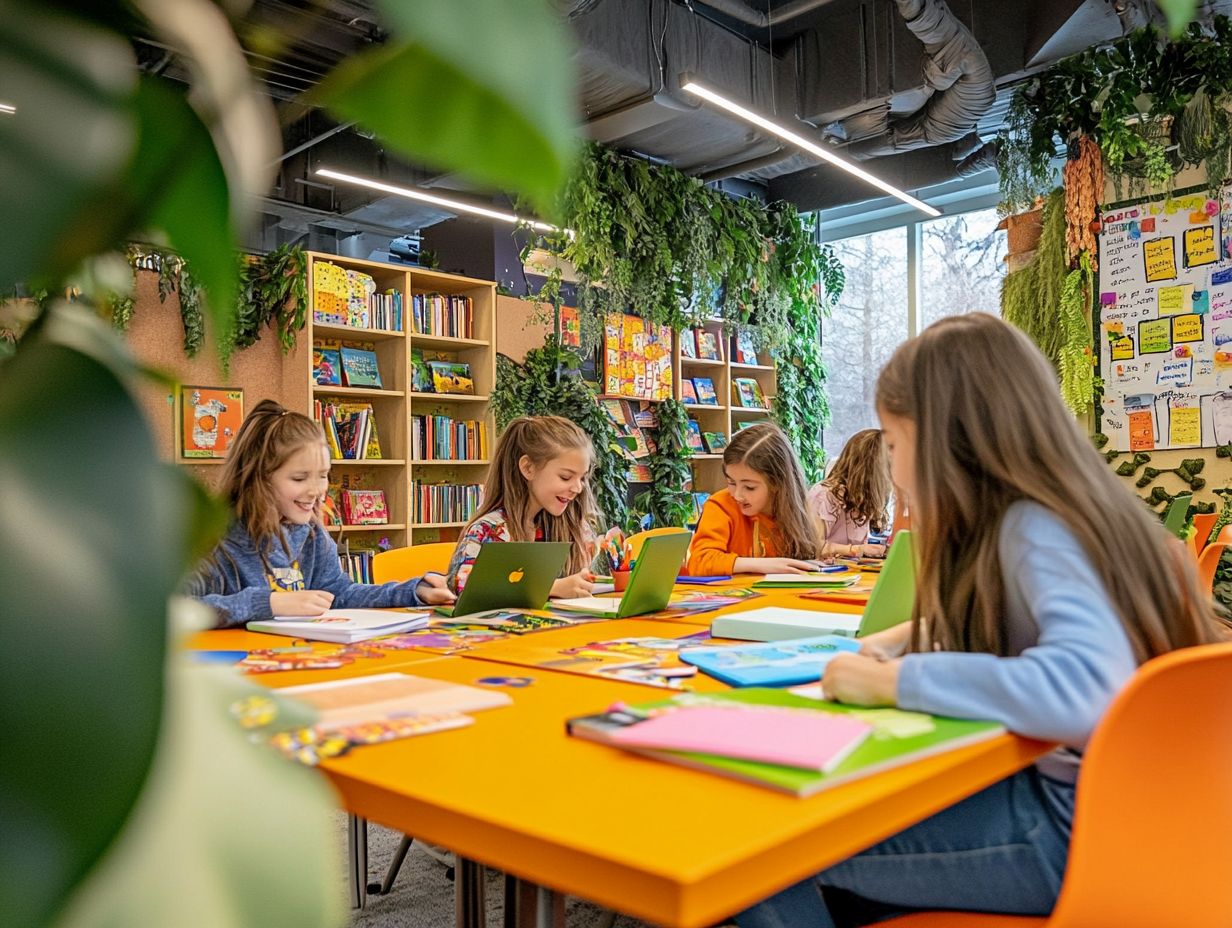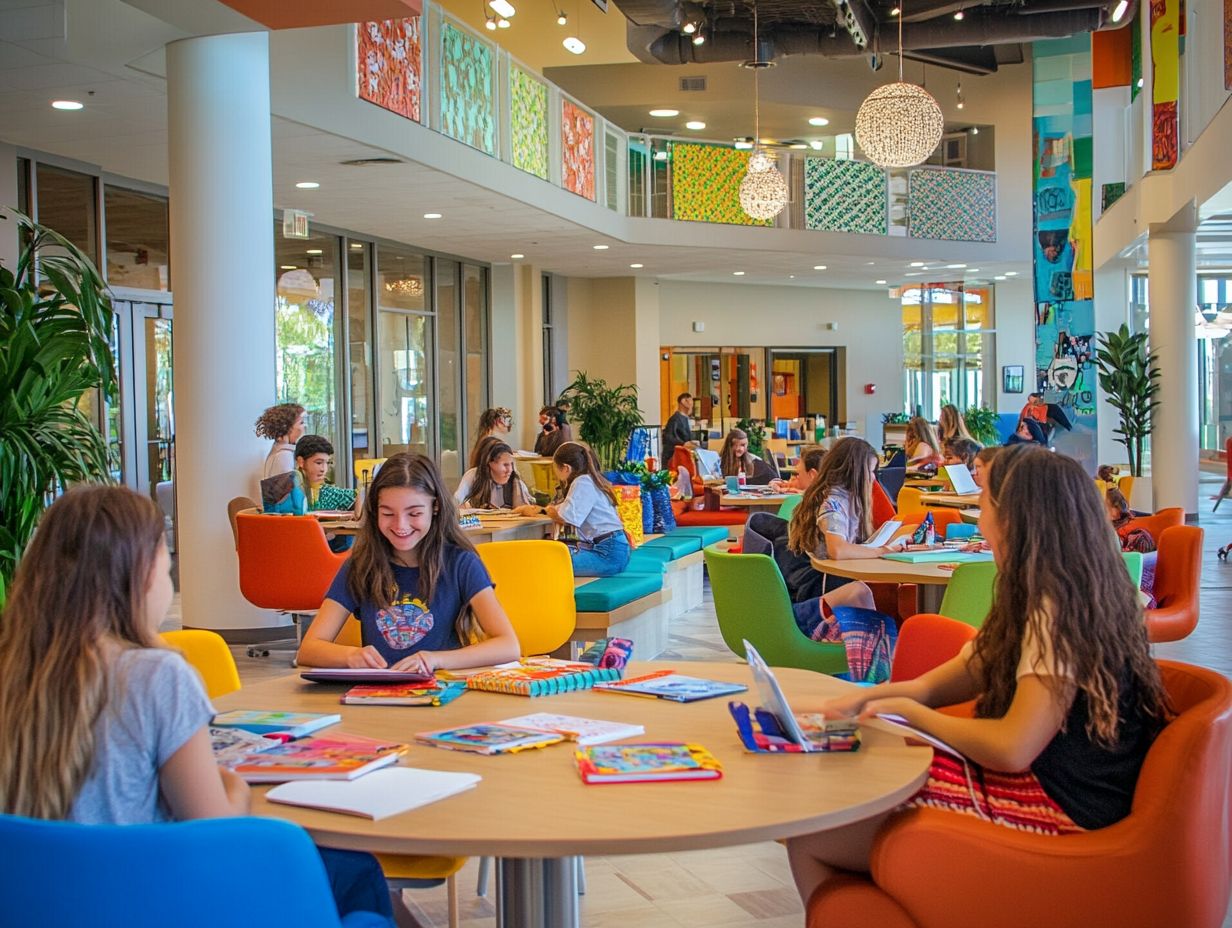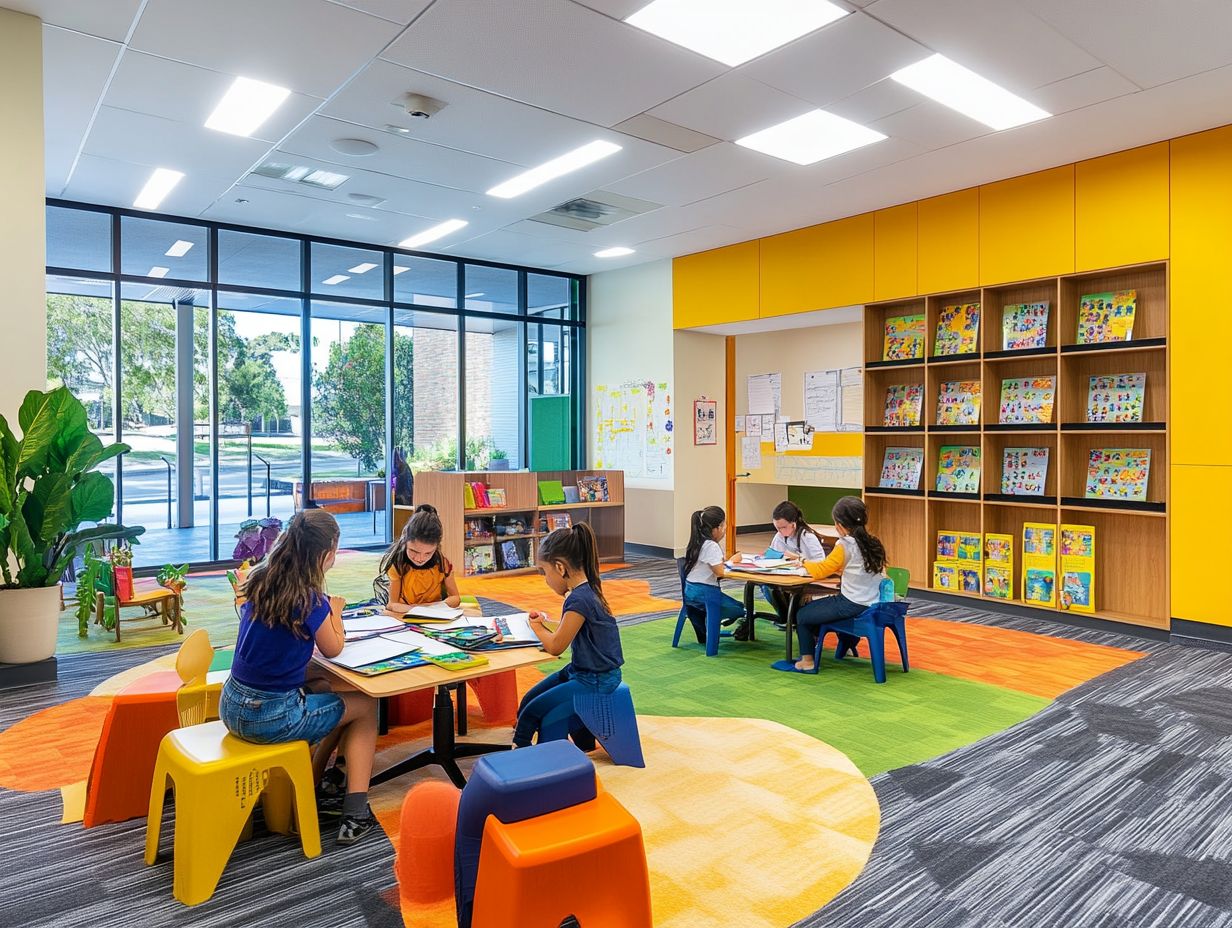Studying can often be perceived as a formidable endeavor, accompanied by challenges that may hinder motivation.
Recognizing the common difficulties that students encounter is a crucial initial step toward effectively addressing these issues.
This article examines innovative strategies to enhance the study experience, including the integration of interactive activities and the development of engaging materials.
Additionally, it discusses the advantages of participating in group study sessions and the positive impact of self-rewarding on the learning process.
Prepare to transform your study routine into an experience that is not only manageable but also enjoyable.
Why Studying is Important

Studying is a fundamental process that not only enhances knowledge retention but also promotes critical thinking and creativity, thereby facilitating both academic and personal success.
The implementation of effective study techniques that are tailored to various learning styles can significantly influence an individual’s capacity to absorb and apply information in practical contexts.
Moreover, incorporating elements such as educational games and interactive learning experiences can enhance the studying process, making it more engaging and enjoyable.
By utilizing strategies such as self-assessment and establishing study schedules, students can create a positive learning environment that encourages exploration and the discovery of new concepts, ultimately leading to mastery and increased confidence.
Common Challenges in Studying
Students frequently encounter a variety of challenges that can impede their academic performance and motivation. Distractions, including mobile devices, social media, and environmental noise, can disrupt focus and hinder effective engagement with study materials.
Furthermore, inadequate time management can result in an overwhelming sense of academic burden, which may further diminish motivation.
To address these concerns, it is advisable to implement focus-enhancing techniques, establish structured study schedules, and incorporate regular study breaks. Such strategies can significantly improve concentration and contribute to a more productive academic experience.
Identifying and Addressing Common Struggles
Identifying and addressing common challenges in studying can significantly enhance a student’s ability to learn and retain information effectively. It is essential to recognize these challenges in order to foster a more productive study environment.
For example, procrastination often arises from overwhelming anxiety regarding assignments; this can be mitigated by breaking tasks into smaller, more manageable segments. Moreover, incorporating active learning techniques—such as summarizing information or teaching it to others—can enhance engagement and comprehension.
Students should also consider setting specific goals for each study session, as this approach not only maintains focus but also provides a clear framework for tracking progress. Additionally, engaging with classmates through group discussions or study sessions allows students to benefit from diverse perspectives, ultimately enriching their understanding and making the study process more enjoyable.
Making Studying Fun
Enhancing the enjoyment of studying is essential for maintaining student engagement and fostering a lifelong love for learning.
By incorporating gamification techniques and educational games into the study process, educators can establish an interactive learning environment that effectively captivates students’ interests.
Engaging quizzes and thoughtfully designed materials not only make the studying experience more enjoyable but also improve knowledge retention through active participation.
Emphasizing creativity in studying promotes diverse approaches that accommodate various learning preferences, ultimately transforming the study experience into a dynamic and enriching endeavor.
Incorporating Interactive Activities

Incorporating interactive activities into study sessions can significantly enhance cognitive engagement and retention. Hands-on experiments, role-playing scenarios, and group activities promote collaboration and create a more dynamic and relatable learning environment.
When students engage with these varied approaches, they not only comprehend theoretical concepts more effectively but also cultivate critical thinking and problem-solving skills. For example, implementing project-based learning enables students to address real-world challenges, thereby reinforcing their understanding through practical application.
Furthermore, the integration of technology through interactive quizzes or gamified learning can stimulate excitement and motivation, transforming conventional study sessions into compelling experiences. Such an enriched environment not only renders learning enjoyable but also encourages deeper exploration and inquiry, facilitating a more holistic educational experience.
Creating Engaging Study Materials
Creating engaging study materials is crucial for maintaining student motivation and enhancing the overall learning experience.
By thoughtfully integrating technology into these materials, educators can cultivate a more dynamic and interactive environment. For example, the use of animated videos in conjunction with traditional textbooks can capture students’ attention and convey information more effectively.
Incorporating collaborative tools, such as online quizzes and discussion boards, promotes peer interaction, thereby facilitating a deeper understanding of the content. Additionally, employing multimedia elements in flashcards can alleviate the monotony of rote memorization by providing auditory and visual stimulation.
Ultimately, a diverse approach that combines creativity with technology not only enriches the study experience but also accommodates various learning styles, ensuring that all students remain engaged and invested in their educational journey.
Studying with a Group
Engaging in group study offers considerable advantages that enhance the learning process and cultivate a sense of community among students.
Study groups facilitate peer teaching, allowing individuals to share knowledge and diverse perspectives, which renders complex subjects more accessible.
Furthermore, collaborative learning fosters accountability, as group members encourage one another to address academic challenges and maintain focus on their educational objectives.
Forming study partnerships can create a supportive environment that enriches the educational experience and contributes to improved academic performance.
Benefits and Tips for Group Studying
The advantages of group study extend beyond simple academic support; they can significantly enhance study motivation and improve learning outcomes. Participation in group activities fosters a sense of belonging and camaraderie, which contributes to a more enjoyable study routine.
Peer feedback offers valuable insights into one’s understanding of the material, while problem-solving exercises can make the study process more interactive and engaging. Effective note-taking during group study sessions ensures that critical concepts are documented and disseminated, facilitating deeper comprehension among all members.
To fully realize the benefits of group study, it is essential to establish clear objectives and roles for each participant. Creating a structured agenda can help maintain focus and productivity during discussions.
Utilizing tools such as shared online documents allows all members to contribute notes and resources in real time, thereby improving teamwork. Encouraging regular check-ins can help maintain accountability and ensure active engagement from each participant in the process.
Incorporating diverse study techniques, such as quizzes or debate formats, can accommodate varying learning preferences within the group, ultimately leading to more effective study sessions.
Rewarding Yourself for Studying

Implementing a rewards system can substantially improve study motivation and foster positive reinforcement for academic endeavors.
By establishing clear incentives for reaching study goals, students can develop a sense of accomplishment that encourages ongoing commitment to their educational pursuits.
Additionally, incorporating self-care during study breaks is essential, as it facilitates mental rejuvenation and supports overall well-being.
Moreover, having accountability partners can offer further support and motivation, transforming the study process into a fulfilling and enriching experience.
Incentives and Self-Care During Study Breaks
Incentives are integral to maintaining motivation, especially during study breaks, which are vital for sustaining focus and performance. The integration of positive reinforcement strategies can effectively encourage students to take essential brain breaks, enabling them to recharge and return to their studies with renewed energy.
Effective note-taking during study sessions further enhances retention, bridging the gap between learning and the practical application of knowledge. By acknowledging the challenges associated with studying and rewarding progress, students can cultivate a healthier relationship with their academic endeavors.
Utilizing short breaks can significantly enhance overall concentration and productivity. For instance, the Pomodoro Technique, which involves studying for 25 minutes followed by a 5-minute break, offers a structured approach that students can adopt for optimal performance.
During these breaks, engaging in self-care activities such as stretching, meditative breathing exercises, or taking a brief walk can invigorate both the mind and body. Establishing tangible rewards, such as enjoying a favorite snack or spending a few minutes on social media, can create positive associations with study breaks.
By strategically incorporating these methods, students not only enhance their study efficiency but also promote a more enjoyable learning experience.
Frequently Asked Questions
How can I make studying fun?
There are many ways to make studying fun, such as using colorful notes, creating study games, and studying with friends.
What are some creative study techniques?

Some creative study techniques include making mnemonic devices, creating mind maps, and using study playlists.
How can studying with friends be beneficial?
Studying with friends can be beneficial because it allows for collaboration, accountability, and an opportunity to learn from each other.
What are some ways to make studying less boring?
Some ways to make studying less boring include taking breaks, switching up study locations, and using hands-on activities.
Is it possible to make studying fun for every subject?
While some subjects may be more challenging to make fun, there are ways to make studying enjoyable for every subject, such as finding real-world applications or creating study challenges.
Can studying be fun and effective at the same time?
Absolutely! By finding study methods that work for you and incorporating some fun elements, you can make studying both enjoyable and effective.




